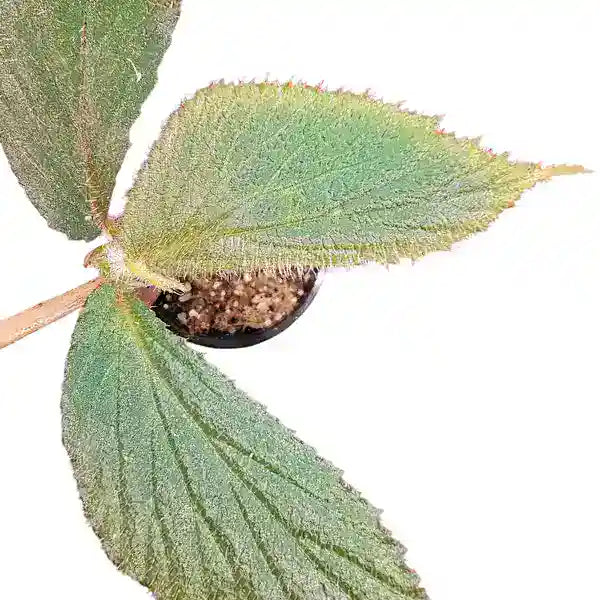Begonia Sp Borneo
- Rs. 1,899.00
-
Regular price
Rs. 3,499.00 -
-45%
- Will be in stock after
Vendor: Jiffy Plants
Couldn't load pickup availability
Spend Rs 1499 for free shipping
Guarantee safe checkout


Begonia Sp Borneo
Selling Size : Single Plant | Pot Included | Secure Packing | Free Shipping
"Begonia sp. Borneo" refers to a begonia species that is native to the island of Borneo. Due to the high biodiversity of Borneo, there are many different begonia species, each with its own specific characteristics and care requirements. The term "sp." indicates that it's an unconfirmed species.However, many of these plants share similar care needs, especially those from the high-humidity rainforests of Borneo.
Here is a general care guide for a begonia sp borneo :
Light:
Bright, indirect light is best. Begonias from Borneo are often found on the forest floor, so they are not accustomed to direct sunlight.
Direct sun will scorch their leaves, leading to brown, crispy edges.
A spot near a north or east-facing window is usually ideal. You can also use a grow light, but be sure it's not too intense.
Humidity:
This is the most crucial factor for "Begonia sp. Borneo" and similar tropical begonias. They require very high humidity, often 80% or more.
They are not well-suited for a typical home environment unless you take specific measures to increase humidity.
The best way to provide high humidity is to grow them in a sealed or semi-sealed environment like a terrarium, vivarium, or glass dome.
Misting is often insufficient and can lead to powdery mildew on the leaves. A humidifier is a better alternative if a terrarium is not an option.
Watering:
Keep the soil consistently moist, but never soggy.
Water when the top inch of the soil feels dry to the touch.
Use a well-draining potting mix to prevent waterlogging, which can cause root rot.
It is best to water at the base of the plant to avoid getting the leaves wet, as this can lead to fungal issues.
Soil:
Use a loose, airy, and well-draining soil mix that still retains some moisture.
A mix for premium begonias or African violets can work well. You can also create your own by combining potting soil with components like perlite, coco coir, and orchid bark.
Temperature:
These plants prefer warm, stable temperatures, typically between 18-27°C (65-80°F).
They are very sensitive to cold temperatures and drafts. Avoid placing them near windows in the winter or near air conditioning vents in the summer.
Fertilizer:
During the active growing season (spring and summer), you can fertilize with a balanced, liquid fertilizer at half the recommended strength once a month.
Begonias are not heavy feeders, so over-fertilizing can be harmful. Reduce or stop feeding in the cooler, darker months.
Common Issues:
Powdery mildew: A common fungal disease that can be caused by poor air circulation and high humidity combined with wet leaves. Proper watering techniques and good airflow are essential.
Root rot: Caused by overwatering and soil that doesn't drain well. Always ensure your pot has drainage holes.
Leaf melt: Begonias from this region can be sensitive to environmental changes and may "melt" (the leaves turn to mush) if their care conditions are not met, especially after being shipped. With the right conditions, the plant can often recover and regrow.
